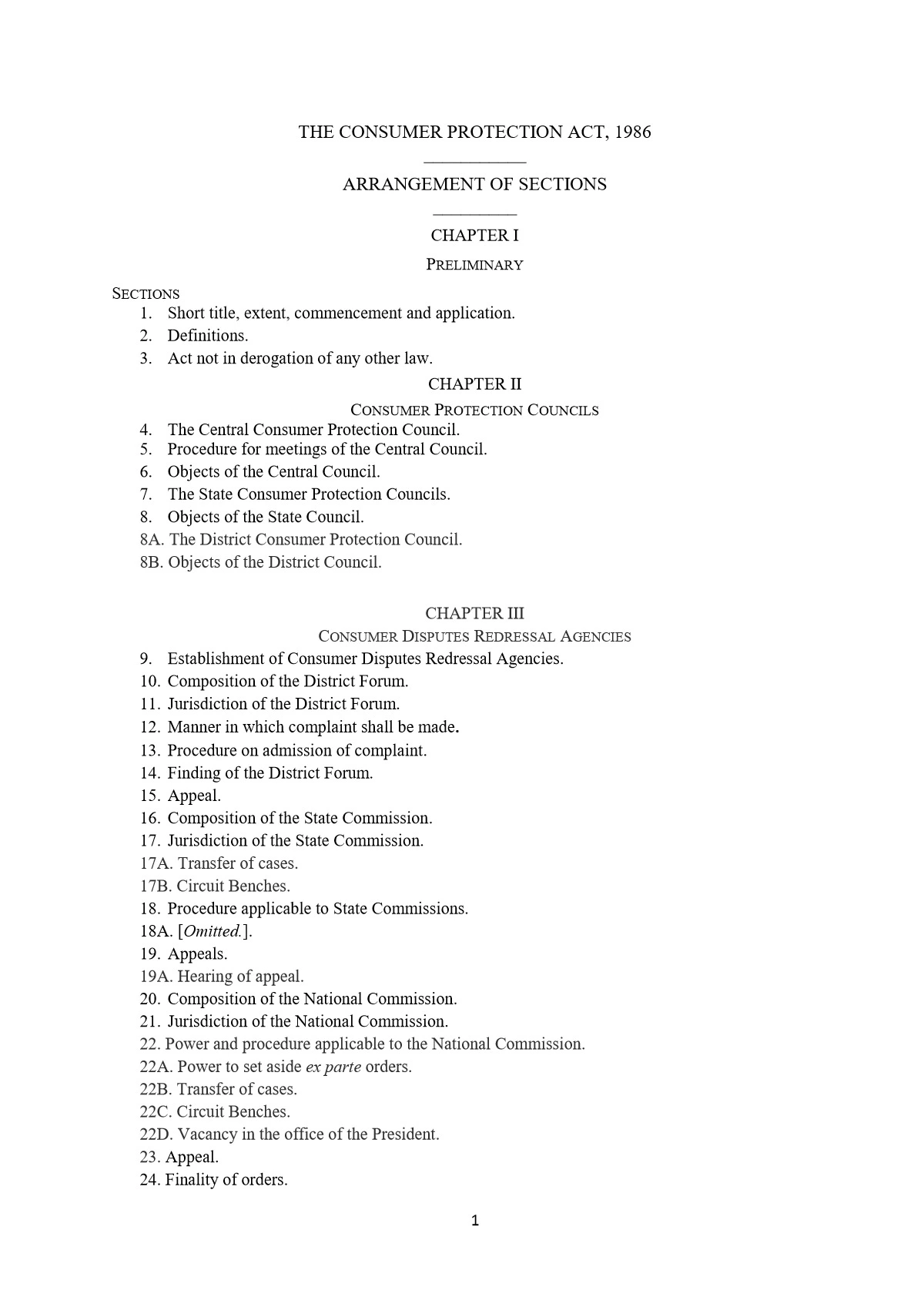
The Consumer Protection Act 1986
The Consumer Protection Act, of 1986 plays a crucial role in empowering consumers and promoting fair trade practices in India by providing them with avenues for redressal of grievances and ensuring their rights are protected effectively. It is a significant legislation in India aimed at protecting the rights of consumers and ensuring fair practices in the marketplace.
Consumer Protection Act Important Sections
| Section Number | Description |
|---|---|
| Section 2(1)(d) | Definition of “consumer” |
| Section 2(1)(g) | Definition of “complaint” |
| Section 2(1)(o) | Definition of “unfair trade practice” |
| Section 2(1)(r) | Definition of “deficiency” |
| Section 2(1)(i) | Definition of “goods” |
| Section 2(1)(o) | Definition of “services” |
| Section 6 | Establishment of Consumer Protection Councils |
| Section 7 | Composition of Central Consumer Protection Council |
| Section 10 | Jurisdiction of District Forum |
| Section 12 | Manner in which complaint shall be made |
| Section 14 | Procedure on admission of complaint |
| Section 15 | Disposal of defective goods |
| Section 17 | Jurisdiction of State Commission |
| Section 19 | Appeals |
| Section 21 | Composition of National Commission |
| Section 24 | Jurisdiction of National Commission |
| Section 27 | Revision |
| Section 34 | Penalty for non-compliance with orders |
| Section 39 | Protection of action taken in good faith |
Consumer Protection Act with Latest Amendments
- Consumer Protection Act, 2019: The Act was extensively amended by the Consumer Protection Act, 2019, which came into effect on July 20, 2020. Some of the significant changes introduced include:
- Central Consumer Protection Authority (CCPA): Establishment of CCPA to promote, protect, and enforce the rights of consumers. It has powers to investigate violations of consumer rights, issue safety notices for goods and services, and impose penalties for false and misleading advertisements.
- Product Liability: Introduction of provisions for product liability actions, making manufacturers, sellers, and service providers liable for any harm caused to consumers due to defective products or deficient services.
- Mediation: Provision for mediation as an alternative dispute resolution mechanism to expedite consumer dispute resolution.
- E-commerce: Specific provisions addressing e-commerce transactions, including obligations of e-commerce entities, liabilities for counterfeit products, and consumer rights in online transactions.
- Enhanced Penalties: Increased penalties for violations of consumer rights, false advertising, and non-compliance with orders of consumer fora.
- Consumer Protection (E-Commerce) Rules, 2020: These rules were introduced under the Consumer Protection Act, 2019, to regulate e-commerce entities more effectively. Key provisions include mandatory display of information, grievance redressal mechanisms, and liabilities of marketplace e-commerce entities.
- Consumer Protection (Direct Selling) Rules, 2021: These rules regulate direct selling entities to protect consumers engaged in direct selling transactions. They outline obligations of direct sellers, prevention of unfair trade practices, and dispute resolution mechanisms.